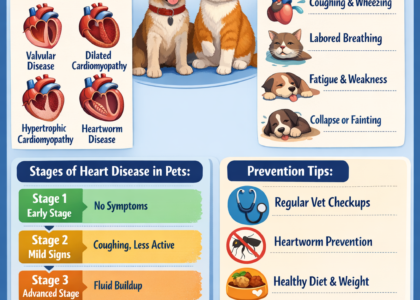Itchy skin in cats is more than just a minor irritation—it can be a sign of deeper health issues, allergies, or environmental sensitivities. If your cat is constantly scratching, licking, or biting at their skin, you’re not alone. This condition is one of the most common reasons pet owners seek veterinary help.
But what if there were gentle, natural remedies that could ease your cat’s discomfort without harsh chemicals or medications?
In this comprehensive guide, we’ll explore the best natural remedies for itchy skin in cats, examine the causes behind the itch, and give you practical solutions that are safe, affordable, and effective. Whether your cat has seasonal allergies, dry skin, or dietary sensitivities, there are holistic ways to help them heal—and prevent future flare-ups.
Common Causes of Itchy Skin in Cats
Before we jump into the natural remedies, it’s essential to understand why your cat is itching in the first place. Itchy skin (also known as pruritus) in cats can be triggered by a variety of causes, some simple and others more complex. Identifying the root cause is crucial to finding the most effective solution.
Fleas and Parasites
Flea allergy dermatitis (FAD) is one of the leading causes of chronic itching in cats. Even one or two flea bites can cause severe reactions in sensitive cats. It’s not just the bite—it’s the saliva of the flea that triggers the immune response.
- Fleas are not always visible, especially if the cat is constantly grooming.
- Mites like Cheyletiella (walking dandruff) or ear mites can also cause intense itching, particularly around the neck, ears, and tail base.
- Ticks and lice, though less common in indoor cats, can still be a source of skin irritation.
Prevention tip: Use flea combs weekly and consider natural flea deterrents like diatomaceous earth or herbal flea collars.
“Fleas are the most commonly overlooked cause of itching. Many owners don’t realize that even indoor cats can be affected,” — Dr. Sarah Wallace, Holistic Veterinarian.
Food Allergies or Sensitivities
Food allergies can lead to chronic skin issues, itching, ear infections, and gastrointestinal upset. Common culprits include:
- Beef
- Dairy
- Chicken
- Fish
- Corn, wheat, and soy
Unlike seasonal allergies, food allergies tend to cause year-round symptoms.
Signs of food allergies include:
| Symptom | Description |
|---|---|
| Itchy ears | Frequent scratching or ear infections |
| Facial itching | Around eyes, mouth, and chin |
| Overgrooming | Licking belly or legs excessively |
| Vomiting or diarrhea | Along with skin irritation |
Elimination diets are often used to identify food triggers. Natural diets, like homemade raw or limited ingredient commercial options, can reduce allergic responses dramatically.
Environmental Allergies (Atopic Dermatitis)
Just like humans, cats can suffer from atopic dermatitis due to allergens like:
- Pollen
- Mold spores
- Dust mites
- Cleaning chemicals or fragrances
Itching may worsen during certain seasons or after cleaning routines. Areas most affected are face, paws, ears, armpits, and belly.
Tip: Use unscented, pet-safe cleaners and vacuum frequently to reduce indoor allergens.
Case Study: A 3-year-old tabby named Luna suffered year-round itching. After switching to fragrance-free cleaners and installing an air purifier, her symptoms reduced by 70% in 3 weeks.
Dry Skin or Low Humidity
Dry indoor air, especially in winter, can cause your cat’s skin to flake and itch. Older cats, or those on poor diets, are especially vulnerable to dry skin conditions.
Symptoms of dry skin include:
- Dandruff-like flakes on fur
- White, dry patches on belly or back
- Excessive grooming without fleas
Adding moisture to the air using humidifiers, and improving dietary fat intake, can make a big difference.
Fungal or Bacterial Infections
When skin is broken from excessive licking or scratching, it’s prone to secondary infections. These can make itching worse.
- Ringworm is a common fungal infection that’s zoonotic (can spread to humans).
- Staphylococcus bacteria often infect open wounds and spread quickly in moist, warm areas.
If natural remedies don’t improve your cat’s skin within a few days, always consult your vet to rule out infection.
Underlying Medical Conditions
Sometimes itchy skin isn’t a dermatological issue at all. Medical conditions like:
- Hyperthyroidism
- Kidney disease
- Autoimmune disorders
…can cause skin sensitivity, hair loss, and excessive grooming.
In these cases, treating the underlying disease is the only long-term solution. Natural remedies can help soothe symptoms but won’t cure the root issue.
Answer Engine Optimization: FAQs – Common Questions About Cat Itching Causes
Why is my cat itching but has no fleas?
Itching can be caused by food allergies, dry skin, environmental triggers, or medical issues even when fleas are not present.
What does it mean if my cat scratches its ears often?
Frequent ear scratching may be a sign of ear mites, yeast infection, or allergic reaction.
Can cats get seasonal allergies like humans?
Yes, cats can react to pollen, mold, and dust with skin irritation, especially in spring and fall.
When to Try Natural Remedies vs. See a Vet
While natural remedies can be effective for managing mild cases of itchy skin in cats, it’s crucial to know when to consult a veterinarian. Understanding the distinction between minor irritations and serious health concerns can ensure your cat receives the appropriate care.
Situations Where Natural Remedies May Be Appropriate
Natural remedies can be beneficial for addressing common, non-severe causes of itchy skin in cats. Consider these options when:
- Mild Allergies: If your cat’s itching is due to seasonal allergies or environmental factors, natural remedies may provide relief.
- Dry Skin: In cases where dry indoor air or bathing frequency is causing skin dryness, natural moisturizers like coconut oil can help.
- Flea Prevention: Natural flea deterrents can be effective in preventing infestations, though they may not eliminate existing ones.
- Minor Skin Irritations: For superficial irritations without signs of infection, topical natural treatments can soothe the skin.
When to Consult a Veterinarian
Certain symptoms indicate that professional veterinary care is necessary. Seek veterinary attention if your cat exhibits:
- Severe or Persistent Itching: If the itching continues despite home treatments or worsens over time.
- Hair Loss: Significant or patchy hair loss that may suggest underlying health issues.
- Open Sores or Scabs: Presence of wounds, scabs, or lesions that could be infected.
- Behavioral Changes: Increased irritability, lethargy, or changes in appetite or litter box habits.
- Signs of Infection: Redness, swelling, discharge, or foul odor from the skin.
The Importance of Professional Diagnosis
A veterinarian can perform diagnostic tests to determine the exact cause of your cat’s itching. These may include:
- Skin Scraping: To check for parasites like mites or fungal infections.
- Allergy Testing: To identify specific allergens causing the reaction.
- Blood Tests: To assess for systemic conditions such as thyroid issues or autoimmune diseases.
Professional diagnosis ensures that your cat receives targeted treatment, which may include prescription medications, specialized diets, or other interventions.
Top Natural Remedies for Itchy Skin in Cats
When your cat is experiencing itchy skin, it’s essential to approach treatment with care and consideration. Natural remedies can offer relief, but it’s crucial to ensure their safety and effectiveness. Below are some widely recognized natural treatments, along with expert insights and considerations.
1. Apple Cider Vinegar (ACV)
Properties:
Apple cider vinegar possesses antifungal and antibacterial properties, making it effective in addressing skin irritations and preventing secondary infections due to excessive scratching.
Usage:
- Dilution: Mix equal parts of ACV and water.
- Application: Using a spray bottle, apply the solution to the affected areas, avoiding open wounds.
Caution:
Always dilute ACV before application. Undiluted vinegar can cause skin irritation or a burning sensation, especially on open wounds.
Expert Insight:
According to Pet Wellbeing, ACV can be beneficial for itchy skin, but it’s essential to ensure proper dilution and avoid application on broken skin. Pet Wellbeing
2. Coconut Oil
Properties:
Coconut oil is rich in medium-chain fatty acids, which have antimicrobial and moisturizing effects. It helps soothe dry, irritated skin and promotes healing.
Usage:
- Topical Application: Gently massage a small amount of organic coconut oil into the affected areas.
- Internal Use: Consult your veterinarian before adding coconut oil to your cat’s diet.
Expert Insight:
Catster highlights that coconut oil can be beneficial for soothing itchy skin and promoting a healthy coat. Catster
3. Aloe Vera
Properties:
Aloe vera contains vitamins A, C, and E, along with anti-inflammatory compounds that can help alleviate itching and promote skin healing.
Usage:
- Topical Application: Apply a thin layer of pure aloe vera gel to the affected areas.
- Caution: Ensure the product is free from alcohol and fragrances, which can irritate the skin.
Expert Insight:
JustAgric notes that aloe vera’s anti-inflammatory properties make it effective for treating dry skin and itching in cats. justagric.com
4. Oatmeal Baths
Properties:
Oatmeal is known for its soothing properties, helping to calm inflamed and itchy skin.
Usage:
- Preparation: Grind plain, unflavored oats into a fine powder.
- Application: Add the oat powder to warm (not hot) water and allow your cat to soak for 5-10 minutes.
Expert Insight:
AnimalKo recommends oatmeal baths as a soothing treatment for itchy cats, especially those with dry skin or mild allergies. Animalko
5. Green Tea
Properties:
Green tea contains polyphenols that have anti-inflammatory and antioxidant effects, which can help reduce itching and promote skin health.
Usage:
- Preparation: Brew decaffeinated green tea and allow it to cool.
- Application: Apply the cooled tea to the affected areas using a clean cloth or spray bottle.
Expert Insight:
Pet Wellbeing suggests that green tea can be beneficial for pets with itchy skin due to its anti-inflammatory properties. Pet Wellbeing
6. Omega-3 Fatty Acids
Properties:
Omega-3 fatty acids, found in fish oil and flaxseed oil, can help reduce inflammation and improve skin health.
Usage:
- Supplementation: Consult your veterinarian for appropriate dosing based on your cat’s weight and health status.
Expert Insight:
PetsCare emphasizes the importance of omega-3 fatty acids in supporting skin health and reducing itching in cats. Veterinary Care at Your Fingertips
When to Consult a Veterinarian
While natural remedies can provide relief for mild cases of itchy skin in cats, it’s essential to recognize when professional veterinary care is necessary. Understanding the signs that indicate a more serious underlying issue can help ensure your cat receives the appropriate treatment.
Persistent or Worsening Symptoms
If your cat’s itching persists despite home treatments or worsens over time, it’s crucial to consult a veterinarian. Persistent symptoms may indicate an underlying condition that requires professional intervention.
Presence of Open Sores or Scabs
Open sores, scabs, or lesions resulting from excessive scratching can lead to infections. If your cat develops these symptoms, seek veterinary care promptly to prevent complications.
Behavioral Changes
Changes in your cat’s behavior, such as increased irritability, lethargy, or changes in appetite, can be signs of discomfort or illness. A veterinarian can assess these symptoms to determine the cause.
Secondary Infections
If you notice signs of infection, such as redness, swelling, discharge, or foul odor from the skin, it’s essential to consult a veterinarian. Secondary infections can exacerbate itching and require medical treatment.
Underlying Medical Conditions
Certain medical conditions, such as allergies, parasites, or systemic diseases, can cause itchy skin in cats. A veterinarian can perform diagnostic tests to identify and treat these conditions effectively
Preventing Future Skin Issues in Cats
Preventing itchy skin in cats involves a combination of proactive care, environmental management, and regular veterinary check-ups. By addressing potential triggers and maintaining a healthy environment, you can help minimize the risk of skin irritations and allergies.
1. Regular Grooming
Regular grooming is essential for maintaining your cat’s skin and coat health. Brushing your cat helps remove loose fur, dirt, and dander, which can contribute to skin irritation.
- Frequency: Aim to brush your cat at least once a week, or more frequently if they have long hair.
- Tools: Use a brush suitable for your cat’s coat type. For example, a slicker brush is effective for long-haired cats, while a bristle brush works well for short-haired breeds.
- Technique: Be gentle to avoid causing discomfort. Start at the head and work your way down to the tail, brushing in the direction of hair growth.
Regular grooming not only keeps your cat’s coat clean but also allows you to monitor their skin for any signs of irritation or abnormalities.
2. Flea and Parasite Control
Fleas and other parasites are common causes of itchy skin in cats. Implementing a consistent flea prevention regimen can help protect your cat from these pests.
- Products: Use veterinarian-recommended flea preventatives, such as topical treatments or oral medications.
- Environment: Regularly clean your cat’s bedding, toys, and living areas to reduce the risk of flea infestations.
- Monitoring: Check your cat for signs of fleas, such as scratching, hair loss, or visible fleas, especially during warmer months.
Effective flea control is crucial for preventing flea allergy dermatitis, a condition that causes severe itching and discomfort in cats.
3. Balanced Diet and Supplements
A well-balanced diet plays a vital role in maintaining healthy skin and coat. Ensure your cat’s food meets their nutritional needs and consider incorporating supplements to support skin health.
- High-Quality Food: Choose a cat food that contains high-quality proteins and essential fatty acids, such as omega-3 and omega-6 fatty acids.
- Supplements: Consult your veterinarian about adding supplements like fish oil or flaxseed oil to your cat’s diet to promote skin health.
- Hydration: Ensure your cat has access to fresh water at all times to prevent dehydration, which can lead to dry skin.
Proper nutrition supports your cat’s immune system and helps maintain the integrity of their skin barrier.
4. Environmental Management
Creating a comfortable living environment can help reduce the risk of skin issues in cats.
- Humidity: Use a humidifier to maintain optimal humidity levels, especially during dry seasons, to prevent dry skin.
- Bedding: Provide soft, clean bedding for your cat to rest on. Wash bedding regularly to remove allergens and irritants.
- Stress Reduction: Minimize stressors in your cat’s environment, as stress can exacerbate skin issues. Provide hiding spots, scratching posts, and interactive toys to keep your cat mentally stimulated.
A stable and comfortable environment contributes to your cat’s overall well-being and skin health.
5. Regular Veterinary Check-ups
Regular veterinary visits are essential for monitoring your cat’s health and addressing any potential skin issues early.
- Frequency: Schedule annual check-ups for healthy cats. Older cats or those with known health issues may require more frequent visits.
- Skin Exams: During veterinary visits, request a thorough skin examination to detect any signs of irritation, parasites, or underlying conditions.
- Vaccinations: Keep your cat’s vaccinations up to date to prevent diseases that can affect the skin.
Routine veterinary care ensures that any skin issues are promptly identified and treated, preventing complications.
1. Is it safe to use apple cider vinegar on my cat’s skin?
Apple cider vinegar (ACV) can be beneficial for itchy skin due to its antifungal and antibacterial properties. However, it’s crucial to dilute ACV properly before application. A common recommendation is to mix equal parts of ACV and water. Never apply undiluted ACV, as it can cause irritation or a burning sensation, especially on open wounds. Always perform a patch test on a small area of your cat’s skin before full application. Catster
2. Can I apply coconut oil to my cat’s skin?
Yes, organic coconut oil can be applied topically to soothe dry and itchy skin. Its antimicrobial properties help reduce inflammation and promote healing. Gently massage a small amount into the affected areas. Some cats may lick the oil off, which is generally safe, but monitor your cat to ensure they don’t ingest excessive amounts. justagric.com
3. How do I use green tea to relieve my cat’s itchy skin?
Green tea contains antioxidants and anti-inflammatory compounds that can help soothe irritated skin. Brew a cup of decaffeinated green tea, allow it to cool, and apply it to the affected areas using a clean cloth or cotton ball. Alternatively, you can pour the cooled tea into a spray bottle and lightly mist the skin. Avoid using green tea on broken or bleeding skin. Archiecat
4. Are there any dietary supplements that can help with itchy skin?
Yes, omega-3 fatty acids, particularly from fish oil, can support skin health and reduce inflammation. Consult your veterinarian for appropriate dosing based on your cat’s weight and health status. Additionally, introducing quercetin into your cat’s diet may help alleviate itching caused by allergies. Pet Wellbeing
5. When should I consult a veterinarian for my cat’s itchy skin?
If your cat’s itching persists despite home treatments, worsens over time, or is accompanied by symptoms such as hair loss, open sores, or behavioral changes, it’s essential to consult a veterinarian. A professional can perform diagnostic tests to determine the underlying cause and recommend appropriate treatment. Catster
H2: Frequently Asked Questions (FAQs) About Best Natural Remedies for Itchy Skin in Cats
Is it safe to use apple cider vinegar on cats for itchy skin?
Apple cider vinegar can be helpful due to its antibacterial and antifungal properties, but it must always be diluted (usually 50/50 with water) before use. Avoid applying it on open wounds to prevent irritation. Always do a patch test first. (Catster)
Can coconut oil help relieve my cat’s itchy skin?
Yes, coconut oil is a natural moisturizer with antimicrobial benefits. You can apply it topically to soothe dry or irritated skin. Some cats may lick it off, which is generally safe in small amounts, but moderation is key. (JustAgric)
How do I give my cat an oatmeal bath for itchy skin?
Use finely ground plain oatmeal (colloidal oatmeal) mixed into lukewarm water. Gently bathe your cat for 5-10 minutes to soothe inflamed skin. Be sure to rinse thoroughly and dry your cat well. Oatmeal helps reduce inflammation and itching.
Are omega-3 supplements effective for itchy skin in cats?
Omega-3 fatty acids, such as those found in fish oil, help reduce inflammation and improve skin health. Consult your vet for proper dosage and to ensure it’s appropriate for your cat. (PetWellbeing)
When should I see a vet about my cat’s itchy skin?
If itching is severe, persistent, or accompanied by hair loss, sores, swelling, or behavioral changes, it’s important to seek veterinary advice. A vet can diagnose underlying conditions and recommend targeted treatments. (Catster)
Conclusion: Embracing Natural Remedies for Your Cat’s Itchy Skin
Dealing with itchy skin in cats can be stressful—for both the cat and their owner. The good news is that best natural remedies for itchy skin in cats, like diluted apple cider vinegar, coconut oil, oatmeal baths, aloe vera, green tea, and omega-3 fatty acids, provide safe and effective options for managing mild skin irritation. These natural treatments help soothe inflammation, reduce itching, and promote healthy skin without harsh chemicals.
However, it’s important to approach these remedies thoughtfully. Always observe your cat closely for any adverse reactions and consult your veterinarian if symptoms persist or worsen. In many cases, combining natural remedies with veterinary care can provide the best outcome.
Regular grooming, flea control, a balanced diet, and a healthy environment are key to preventing future skin issues. By taking a proactive approach, you can keep your feline friend comfortable and itch-free, ensuring a happier, healthier life.
Remember, natural remedies are not a one-size-fits-all solution but valuable tools in your cat care toolkit. Prioritize your cat’s well-being by blending these natural treatments with expert guidance to effectively manage itchy skin and enhance your pet’s quality of life.






